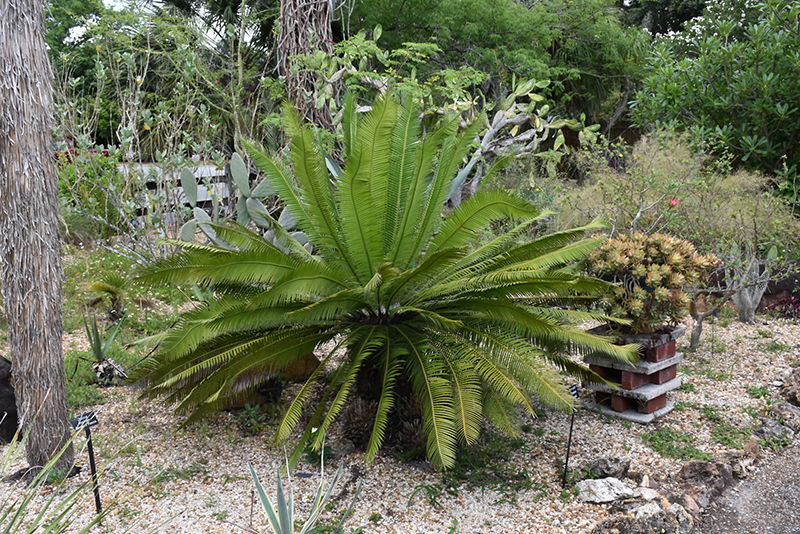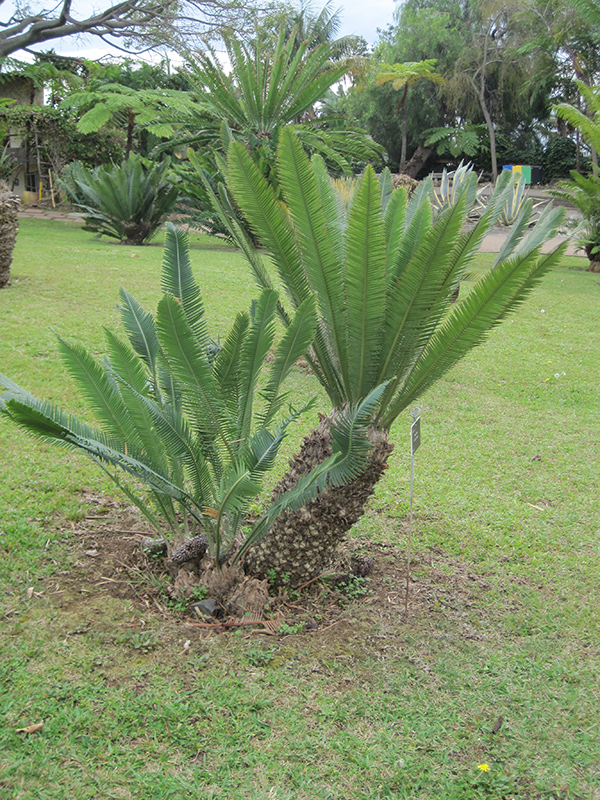Height: 8 feet
Spread: 6 feet
Sunlight:
![]()
![]()
Hardiness Zone: 9a
Other Names: Virgin Palm, Chestnut Cycad
Description:
A very slow growing cycad with radiating fern like leaves; will develop a trunk over a long period; an attractive accent or container plant that prefers moist, well drained, and fertile soil; hardy and tolerant of light frost
Ornamental Features
Chestnut Dioon's attractive large glossy narrow pinnately compound leaves emerge light green in spring, turning bluish-green in color with pointy lime green spines the rest of the year on a plant with a round habit of growth. The dark brown stems can be quite attractive.
Landscape Attributes
Chestnut Dioon is a spreading evergreen tropical plant with a more or less rounded form. Its relatively fine texture sets it apart from other garden plants with less refined foliage.
This is a relatively low maintenance plant, and should never be pruned except to remove any dieback, as it tends not to take pruning well. It has no significant negative characteristics.
Chestnut Dioon is recommended for the following landscape applications;
- Accent
- Rock/Alpine Gardens
- General Garden Use
- Container Planting
Planting & Growing
Chestnut Dioon will grow to be about 8 feet tall at maturity, with a spread of 6 feet. It has a low canopy with a typical clearance of 3 feet from the ground. It grows at a slow rate, and under ideal conditions can be expected to live for 50 years or more. As an evegreen perennial, this plant will typically keep its form and foliage year-round.
This plant does best in full sun to partial shade. It does best in average to evenly moist conditions, but will not tolerate standing water. It is not particular as to soil pH, but grows best in rich soils. It is quite intolerant of urban pollution, therefore inner city or urban streetside plantings are best avoided. This species is not originally from North America. It can be propagated by division.
Chestnut Dioon is a fine choice for the garden, but it is also a good selection for planting in outdoor pots and containers. Because of its height, it is often used as a 'thriller' in the 'spiller-thriller-filler' container combination; plant it near the center of the pot, surrounded by smaller plants and those that spill over the edges. It is even sizeable enough that it can be grown alone in a suitable container. Note that when growing plants in outdoor containers and baskets, they may require more frequent waterings than they would in the yard or garden.






